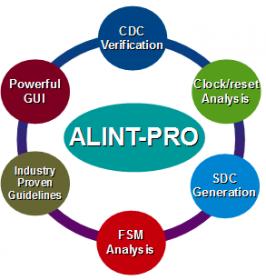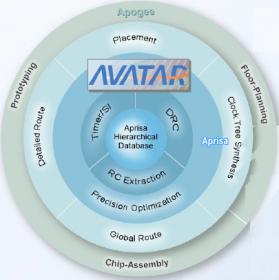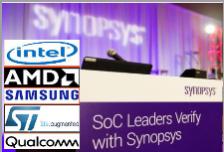Finite state machines (FSMs) are widely adopted as part of reactive systems to capture their dynamic behaviors using a limited number of modes or states that usually change according to the applied circumstances. Some terminologies are frequently used to describe the FSM characteristics: state, transition, condition and … Read More
Tag: alex tan
Verification Importance in Academia
“Testing can only prove the presence of bugs, not their absence,” stated the famous computer scientist Edsger Dijkstra. That notion rings true to the many college participants of the Hack@DAC competition offered during DAC 2018 in San Francisco. The goal of this competition is to develop tools and methods for identifying security… Read More
Keeping Pace With 5nm Heartbeat
A Phase-Locked Loop (PLL) gives design a heartbeat. Despite its minute footprint, it has many purposes such as being part of the clock generation circuits, on-chip digital temperature sensor, process control monitoring in the scribe-line or as baseline circuitry to facilitate an effective measurement of the design’s power… Read More
Aprisa and Apogee – The New Avatars
Earlier physical optimization impacts a design QoR gain and can disclose potential hurdles in dealing with unknown design variants such as new IP inclusion or new process node issues. Along the RTL-to-GDS2 implementation continuum, a left-shift move requires a robust modeling and proper context captures in order to produce… Read More
Accelerated Verification with Synopsys
At DAC 2018, Synopsys held a lunch panel discussing verification challenges faced by the industry leaders, their adopted approaches and the overall verification technology trends. This panel of industry experts from Intel, AMD, Samsung, STM and Qualcomm also shared their viewpoints on what drives the SoC complexity and how… Read More
Mentor Calibre Panel
Getting your tape-out done on time is hard, but can it be made easier? That was the main topic of Mentor’s Calibre Panel held at DAC 2018, attended by a few key players in IC design ecosystem: Bob Stear, VP of Marketing at Samsung represented the foundry side; from the IP side, Prasad Subramaniam, VP of eSilicon for R&D and Technology;… Read More
Liberate Trio Embraces ML and Cloud
A chain is as strong as its weakest link. This phrase resonates well in Static Timing Analysis (STA) domain, though it is about accuracy rather than durability. As timing signoff step provides the final performance readings of a design, an STA outcome is as good as its underlying components. Aside from the parasitic extraction … Read More
DAC 2018 Potpourri
The venue
Despite of being held at the new three-story Moscone West building, this year 55th DAC in San Francisco bore many similarities as compared with last year’s. Similar booth decors and floorplan positioning of the big two, Synopsys and Cadence, which were across of each other and right next to the first floor entrance –although… Read More
Achieving Clean Design Early with Calibre-RTD
Functional and physical verification are easily the two long poles in most IC product developments. During a design implementation cycle, design teams tend to push physical verification (PV) step towards the end as it is a time consuming process and requires significant manual interventions.
PV Challenges
In the traditional… Read More
RAL, Lint and VHDL-2018
Functional verification is a very effort intensive and heuristic process which aims at confirming that system functionalities are meeting the given specifications. While pushing cycle-time improvement on the back-end part of this process is closely tied to the compute-box selection (CPU speed, memory capacity, parallelism… Read More











